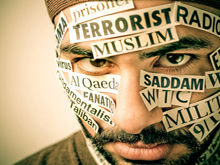The 'Muslim Question' and the future of multiculturalism
- Dates
- Thursday 7 February 2013 (09:00-16:30)
- Contact
Workshop Leader: Dr Chris Allen

Despite much of today’s Europe being increasingly diverse and multicultural, key political figures - Cameron, Sarkozy and Merkel amongst others - have sought to initiate debates about the future of multiculturalism. For some, multiculturalism is ‘dead’. But as Bikhu Parekh (2008) points out, many of the anxieties about multiculturalism revolve around what he describes ‘the Muslim Question’: how to address the serious political, social and cultural ‘threat’ perceived to be posed by Muslims and Islam. The effects of this are apparent. Amongst others, research has shown significant rises in anti-Muslim and anti-Islamic attitudes within the general public (British Social Attitudes Survey, 2010), the exponential growth of negative Muslim/Islam-related media coverage (Insted, 2007) and the emergence of far-right street movements – e.g. the English Defence League – which singularly campaigns against Muslims and Islam (Allen, 2010). Similar issues can also be seen across much of mainland Europe.
The aims of the workshop are to:
- investigate how the ‘Muslim Question’ relates to debates about multiculturalism;
- explore why the perceived threat of Muslims in Britain – and further afield – has become so pervasive, permeating the social, political, cultural and policy settings;
- reflect on the crises and future of multiculturalism.
The workshop will bring together academics from across the University with practitioners, policymakers and activists to participate in informed, focused and critical discussions relating to this extremely timely and salient issue. Drawing upon current understanding, evidence and knowledge, the workshop will consider competing political, social, cultural, economic, theological and policy perspectives including where and how they intersect and overlap. The workshop will support academics to explore how the University might have maximum impact in relation to this timely issue; whether to inform and influence new political and policy landscapes such as the APPG or Cross-Government Working Group or to position itself at the forefront of emergent research agendas. In addition to establishing new opportunities to explore interdisciplinary collaboration and partnership both inside and outside the University, the workshop also compliments existing cross-school initiatives including the soon to be launched Superdiversity Interdisciplinary Research Institute (SIRI) and the Anglo-German Zeitgeist seminars.
Internal attendees:
- Sarah Colvin – Inst of German Studies (POLSIS);
- Arshad Isakjee – Geography (Life & Environmental Sciences);
- Ricky Joseph – CHASM (Social Policy & Business School);
- Chris Shanahan – Theology (Arts & Law)
External attendees:
- Fiyaz Murghal – ‘Measuring Anti-Muslim Attacks’;
- Sally Sealey –Cross-Government Working Group on Anti-Muslim Hatred, DCLG;
- George Turner – All Party Parliamentary Group on Islamophobia;
- Richard Browne – Be Birmingham, Birmingham City Council.